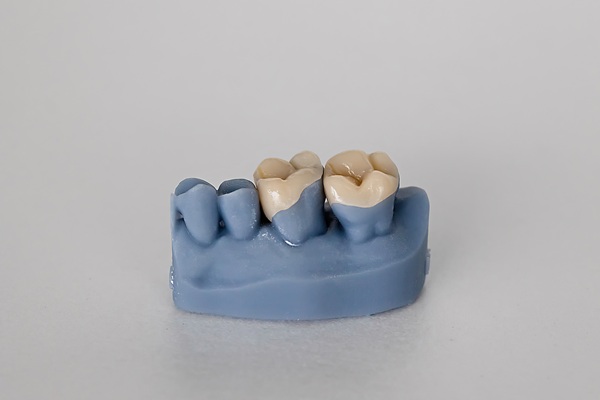5 Signs That You May Have Bruxism

Wondering if you have bruxism? There are quite a few causes of bruxism. Thus, it is a good idea for you to understand these causes so that you can figure out your exact reason for grinding or clenching your teeth. The most common causes of bruxism are somehow related to one’s overall lifestyle habits. Those who experience stress much more susceptible to being diagnosed with this condition.
Other common causes of grinding and clenching one's teeth include taking certain medications, being diagnosed with certain medical conditions and having crooked teeth or a misaligned jaw.
Common signs that say someone may have bruxism
The following is a list of five of the more common signs associated with bruxism:
#1 – Experiencing a sore jaw
It is likely that those who often wake up experiencing a sore jaw are grinding or clenching their teeth during the night.
#2 – Experiencing sore or damaged teeth
Whether the pressure from grinding or clenching is constant or intermittent, it often results in experiencing sore or damaged teeth. The teeth will often become sore due to the constant pressure. If this constant pressure is allowed to go on for a long period of time, it is possible to damage the teeth. This damage includes becoming fractured, chipped or loose.
#3 – Experiencing worn down teeth
When someone constantly grinds or clenches their teeth it will make it so their teeth are worn down. Having worn down teeth or teeth that now have uneven chewing services can lead to their experiencing a number of additional oral problems. This includes tooth enamel problems as when teeth are worn down, it often leads to some type of tooth enamel loss.
#4 – Experiencing headaches and earache
The pressure of clenching or grinding does not only affect one’s teeth, but it can also create headaches and earaches, which can range from dull to sharp.
#5 – Can bruxism go away?
While it is possible that bruxism can go away on its own without any type of dental treatment, this does not happen very often. In order for bruxism to go away, it needs some form of treatment. If the cause of the bruxism is eliminated from one’s life, then it is also possible for the bruxism to go away without professional treatment.
Do you currently grind or clench your teeth?
Know that you understand the signs of bruxism, if you are experiencing one or more it is recommended for you to make an appointment with a dental professional for a proper diagnosis. There are a few options available for treating bruxism. Successful treatment is often dependent on how minimal or how extreme your bruxism is affecting your life. The fact that bruxism can cause a lot of damage to your teeth makes it essential for you to take action soon, as the longer you wait, the more damage that will be done due to your grinding and clenching.
Request an appointment here: https://hemetdentalcenter.com or call Hemet Dental Center: Brian Stiewel DDS, INC. at (951) 707-4366 for an appointment in our Hemet office.
Check out what others are saying about our services on Yelp: Read our Yelp reviews.
Recent Posts
You may need a tooth extraction to improve your oral health. Preserving teeth is the primary goal of dentists. But there are cases when removing the tooth is important in achieving good dental health. Here are the details on when it is necessary for one’s oral health to get a tooth extraction.Tooth extraction may be…
A dental onlay is a conservative dental restoration designed to repair damage or decay in the tooth while preserving the maximum amount of natural structure. Unlike crowns, which cover the entire tooth, a dental onlay fits snugly over the affected area, restoring function and appearance. This approach offers significant benefits for patients looking to maintain…
Your dentist will decide if you need a tooth extraction for your broken tooth. This type of dental injury needs immediate correction. Pain is a common symptom. Finding out when your broken tooth needs this surgery can help you prepare for it. Here are the details on when you should get a tooth extraction for…
Tooth extraction can be a daunting prospect for anyone, let alone children. Fortunately, our team can help parents learn everything they need to know about tooth extraction. As a parent, it is natural to be concerned about your child's well-being during a medical procedure. Knowing what to expect before, during, and after this common dental…


